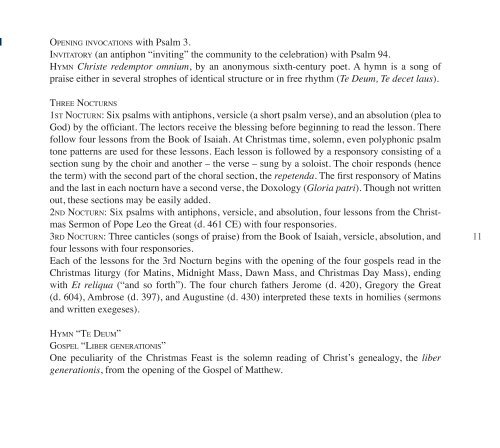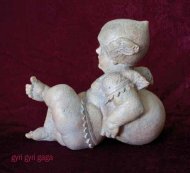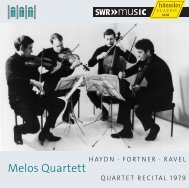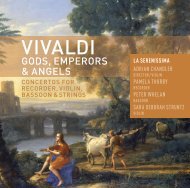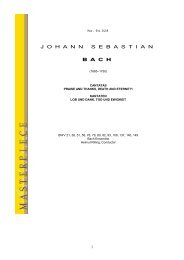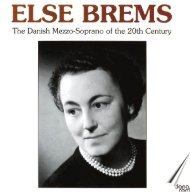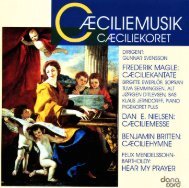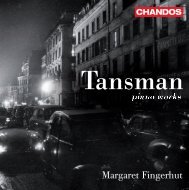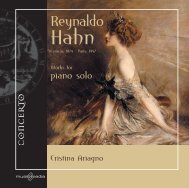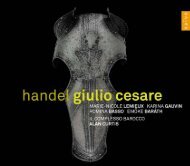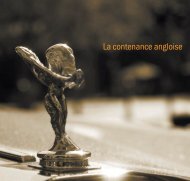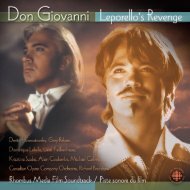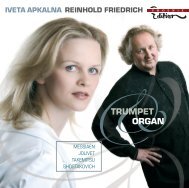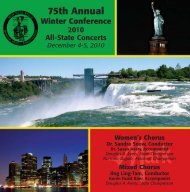You also want an ePaper? Increase the reach of your titles
YUMPU automatically turns print PDFs into web optimized ePapers that Google loves.
Opening invocations with Psalm 3.<br />
Invitatory (an antiphon “inviting” the community to the celebration) with Psalm 94.<br />
Hymn Christe redemptor omnium, by an anonymous sixth-century poet. A hymn is a song of<br />
praise either in several strophes of identical structure or in free rhythm (Te Deum, Te decet laus).<br />
Three Nocturns<br />
1st Nocturn: Six psalms with antiphons, versicle (a short psalm verse), and an absolution (plea to<br />
God) by the officiant. The lectors receive the blessing before beginning to read the lesson. There<br />
follow four lessons from the Book of Isaiah. At Christmas time, solemn, even polyphonic psalm<br />
tone patterns are used for these lessons. Each lesson is followed by a responsory consisting of a<br />
section sung by the choir and another – the verse – sung by a soloist. The choir responds (hence<br />
the term) with the second part of the choral section, the repetenda. The first responsory of Matins<br />
and the last in each nocturn have a second verse, the Doxology (Gloria patri). Though not written<br />
out, these sections may be easily added.<br />
2nd Nocturn: Six psalms with antiphons, versicle, and absolution, four lessons from the Christmas<br />
Sermon of Pope Leo the Great (d. 461 CE) with four responsories.<br />
3rd Nocturn: Three canticles (songs of praise) from the Book of Isaiah, versicle, absolution, and<br />
four lessons with four responsories.<br />
Each of the lessons for the 3rd Nocturn begins with the opening of the four gospels read in the<br />
Christmas liturgy (for Matins, Midnight Mass, Dawn Mass, and Christmas Day Mass), ending<br />
with Et reliqua (“and so forth”). The four church fathers Jerome (d. 420), Gregory the Great<br />
(d. 604), Ambrose (d. 397), and Augustine (d. 430) interpreted these texts in homilies (sermons<br />
and written exegeses).<br />
11<br />
Hymn “Te Deum”<br />
Gospel “Liber generationis”<br />
One peculiarity of the Christmas Feast is the solemn reading of Christ’s genealogy, the liber<br />
generationis, from the opening of the Gospel of Matthew.


